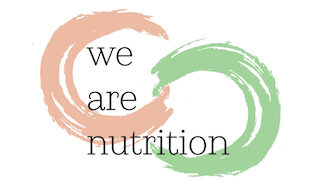You’re Not the Only One!
During menopause, oestrogen levels sharply drop and collagen levels decline. This affects not only your skin (hello, wrinkles!) but also your joints, muscles, and bones. We can lose up to 30% of collagen in the first five years of menopause. Sadly, there’s no confusion there! As a result, many women search for and choose menopause collagen supplements.
How Can Collagen Loss Affect You?
Decreasing collagen causes joint pain, muscle stiffness, and a higher risk of injury, which feels especially frustrating when you’re trying to stay or get active. A 2025 review of 36 clinical trials on type I hydrolysed collagen confirmed consistent benefits for joint health – a win for menopausal women. Muscle support results were mixed, but combining collagen with resistance training delivered good outcomes. Daily collagen supplementation has been shown to improve spine and neck bone density. Research also shows that collagen peptides can increase skin hydration and elasticity: all good news!
So, How Does Collagen Work?
We know collagen peptides enter the bloodstream after we consume them. However, researchers have yet to pin down exactly where they end up or how they behave in specific parts of the body. This may explain why people report varied results.
Menopause Collagen Supplements
Both of these types of collagen offer unique benefits:
- Marine collagen (from fish): Mostly type I; supports skin, bones, tendons; praised for better absorption.
- Bovine collagen (from cows): Contains type I and III; helps muscles, blood vessels, and possibly vaginal health (though research is limited).
What About Vegan Collagen?
Vegan collagen supplements don’t contain actual collagen. Instead, they include “collagen-building” nutrients that support natural production. Look for:
- Vitamin C (vital for collagen synthesis)
- Zinc and copper
- Amino acids (glycine, proline, lysine)
The evidence for these formulations is still limited; that said, they may help support skin and joint health, especially if you don’t consume many animal products.
Still Confused?
Joint and muscle pain during menopause affects many women. It can be painful and just downright annoying! Trying a collagen supplement could be worth a go. Remember, the best results come when supplements are combined with a healthy lifestyle. When it comes to improving facial skin, some research suggests collagen may help, but there’s no guarantee it will actually reach the skin on your face.
Feeling stronger and healthier is so important for our self-esteem at this time. Strength brings confidence with it, and that’s something we could all welcome more of!
Want to discuss your circumstances? Feel free to drop me a message at charlotte@wearenutrition.co.uk
Or have a look at my signature menopause package: The Resilient You Reset
Image: @azerbaijan-stockers freepik

